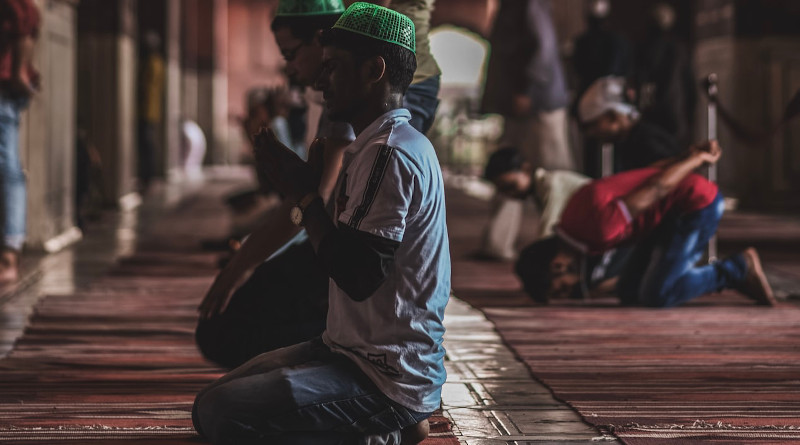Anti-Muslim Sentiments In India’s Political Landscape – OpEd
In the first half of 2023, India bore witness to a disturbing surge in hate speech events targeting its Muslim minority population. This article delves into the documented instances of such events, the underlying causes, and the potential ramifications for Indian society and politics.
While India lacks an official definition of hate speech, we adopt the United Nations framework, which characterizes hate speech as “any form of communication, whether oral, written, or behavioral, that employs prejudiced or discriminatory language towards an individual or group based on attributes such as religion, ethnicity, nationality, race, color, descent, gender, or other identity factors.” Our analysis encompasses various forms of hate speech, including direct calls to violence, economic boycotts, and the propagation of conspiracy theories aimed at stigmatizing and marginalizing religious minorities.
India has witnessed an escalating trend of hate speech since 2014, coinciding with the rise of the Hindu-nationalist Bharatiya Janata Party (BJP) to power. This period has seen not only a surge in hate speech but also the active participation of government officials in disseminating such rhetoric. Hate speech is not merely an abstract debate about the limits of free speech; it has real-world consequences. It disrupts daily life, destabilizes communities, triggers violence, and often results in deadly riots against marginalized groups.
Hate speech in India is not confined to a few isolated incidents but rather represents a systemic issue. Hate speech events have been on the rise, and the first half of 2023 was no exception. Across 17 states, including the National Capital Territory of Delhi and the Union Territory of Jammu and Kashmir, there were 255 recorded instances of hate speech gatherings or rallies targeting Muslims during this period. This alarming statistic equates to over one anti-Muslim hate speech event occurring daily.
One striking aspect of these hate speech events is their geographical distribution. A significant majority, 80%, of these events occurred in states ruled by the BJP, highlighting the party’s apparent complicity in or tolerance of such activities. States like Maharashtra, Karnataka, Madhya Pradesh, Rajasthan, and Gujarat witnessed the highest number of hate speech gatherings, with Maharashtra alone accounting for 29% of such incidents. Of the top eight states with the highest hate speech events, seven were governed by the BJP or its coalition partners.
Around 52% of hate speech gatherings in BJP-ruled states and union territories were orchestrated by entities affiliated with the Rashtriya Swayamsevak Sangh (RSS), including organizations like the Vishwa Hindu Parishad (VHP), the Bajrang Dal, the Sakal Hindu Samaj, and the Bharatiya Janata Party itself. In total, 42% of all hate speech gatherings across the 17 states and union territories were organized by groups linked to the RSS.
A troubling aspect of these hate speech events is their reliance on dangerous conspiracy theories targeting Muslims. Approximately 64% of events in BJP-ruled states and union territories incorporated references to popular Hindu far-right anti-Muslim conspiracy theories. These theories, including “Love Jihad,” “Land Jihad,” and “Vyapar Jihad,” serve to further stigmatize and isolate the Muslim community. Overall, 51% of all the hate speech gatherings in the 17 states and union territories featured anti-Muslim conspiracy theories.
Furthermore, a concerning 33% of all these gatherings explicitly called for violence against Muslims, adding a grave dimension to the hateful rhetoric. About 11% of events included explicit calls for Hindus to boycott Muslims, deepening the divisions within society. Disturbingly, 4% of all the events featured hate-filled and sexist speeches explicitly targeting Muslim women, amplifying the discrimination faced by this vulnerable group. Nearly 12% of events featured calls to arms, further exacerbating the potential for violence.
The timing and distribution of these hate speech events raise questions about their political motives. It is notable that 33% of them occurred in states that had already conducted or were set to conduct state legislative elections in 2023. Additionally, over 36% of these events took place in states slated to hold legislative elections in 2024. In total, nearly 70% of these events occurred in states with legislative elections either in 2023 or 2024, pointing to the possible instrumentalization of hate speech for voter mobilization.
The surge in hate speech events targeting India’s Muslim minority in the first half of 2023 paints a grim picture of the state of social cohesion and political discourse in the country. It highlights the need for urgent action to combat the spread of hate speech and its dangerous consequences. Addressing this issue requires not only vigilance but also a concerted effort from all sections of society, including the political establishment, to promote tolerance, inclusivity, and respect for diversity. Failure to do so risks further division and unrest in India, a country known for its pluralistic ethos and commitment to secularism.


Another of the usual ISI backed stories to divert attention from crumbling economy at home.